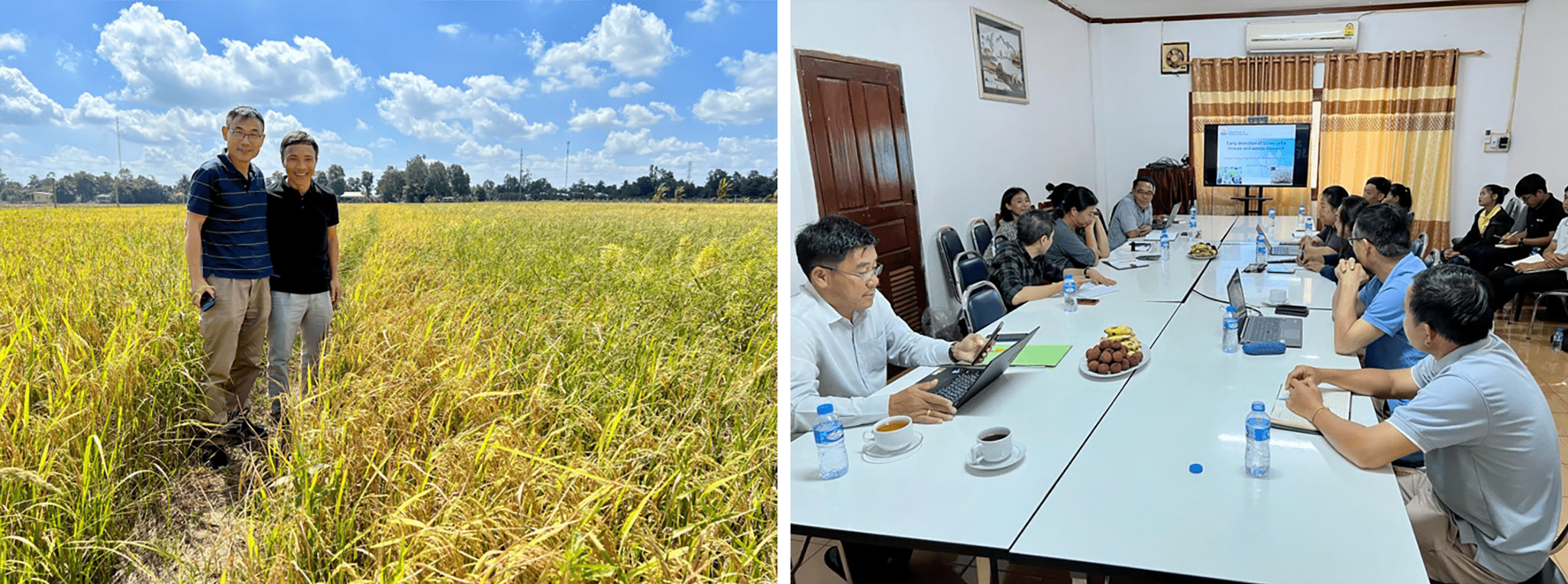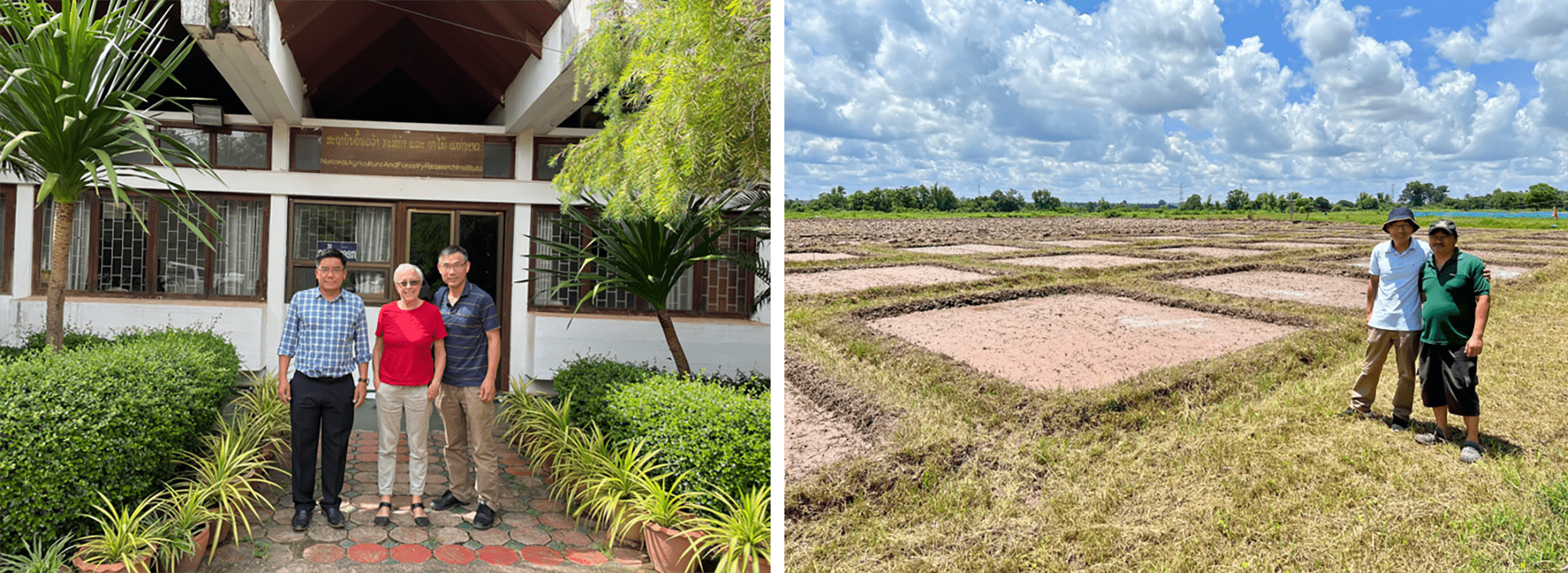

Integrated weed management in Laos, Cambodia and Vietnam
November 7, 2023

The Crawford Fund’s New South Wales Committee recently supported Dr Hanwen Wu to carry out training to enhance integrated weed management (IWM) within the rice-based farming systems of Lao PDR, Cambodia and Vietnam. This will assist with his involvement in ACIAR projects and future planned Australian volunteers initially in Laos and then Cambodia; and developing a new potential ACIAR proposal.
“The funding support from the Crawford Fund, together with the generous support from Prof Deirdre Lemerle, allowed me to visit nine institutions in a 15-day period and establish networks with local organisations,” said Dr Wu, Principal Research Scientist at the NSW Department of Primary Industries.
The training activity involved visits and discussions with local weed scientists and farmers, as well as visiting field sites in Can Tho (Vietnam), Phnom Penh (Cambodia), Vientiane and Savannakhet (Laos).
“Together with local participants, a broad range of areas of common interest were identified, including the urgent need in capacity building among farmers, resellers, private and public advisors,” he said.
“For example, government agencies and universities are highly concerned about the safety and correct use of herbicide among farmers. Farmers and input sellers have little knowledge about the herbicide selection, mode of action, application techniques, factors on herbicide efficacy, plant back period, maximum residue limit, risks of human health and off-target damages to the environment and the importance of PPE,” he said.

According to Dr Wu, farmers urgently need assistance in their decision making of herbicide selection to suit various rice seeding systems and rotational cash crops, without causing herbicidal damage to the following crops.
The need for assistance in benchmarking herbicide resistance surveys across the three countries involved in the training initiative, particularly in relation to surveying and testing protocols, and glasshouse trials was also noted.
“Researchers from Can Tho University, The Royal University of Agriculture (Cambodia) and the National University of Laos all requested support in training the next generation of scientists particularly in relation to supervising post-graduate students and guiding scientific writing,” he said.
“As well as exploring future capacity building opportunities in South East Asia, developing a better understanding of the weed issues in these countries will assist Australian researchers to prevent the potential entry of exotic invasive plants into the country,” he said.
“Little is known of the potential threat of invasive plants from South East Asia, and such collaborations help to improve our preparedness in responding to any biosecurity threats from southeast Asian countries. For example, weedy rice is one of the biggest problems in Vietnam and Cambodia. The weed looks very similar to cultivated rice and is very difficult to control, with seed contamination in the harvested grains very common. Any introduction of weedy rice to Australia will be a disaster to the local rice industry,” he concluded.




